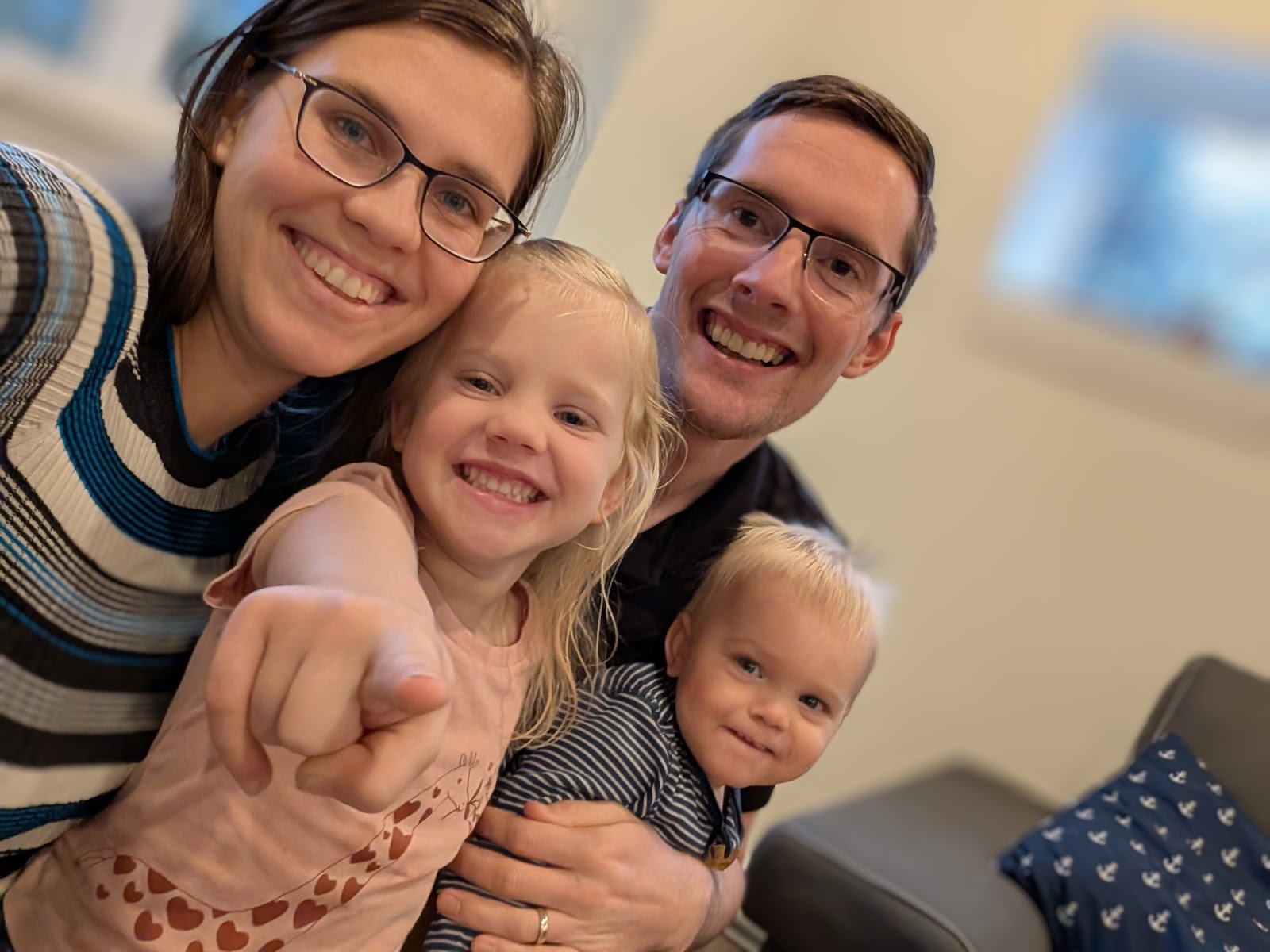In the past week, we were able to present to students from Kindergarten to Grade 12 about MAF, our part in the work, and about Papua New Guinea. While each presentation was slightly different, it was great to see the interaction and engagement in all of the students.
In one classroom, we shared a story about one girl's journey to school in Papua New Guinea. Nobody in her village had ever been to school before, since the nearest one was a 7-day trek away through dense jungle and across raging rivers. She made this trek without even knowing if there was room in the school or if she had enough money to pay the school fees. Once she arrived, she discovered that the classes were full; but thankfully, the headmaster would never refuse anyone who had come from so far away. She also had just enough money to pay for one year of school -- her family's life savings. Twelve year old Ruth could never have been more proud to be in school.
After sharing this story, we discussed some of the differences between life in Canada and life in a remote Papua New Guinean village. What if there were no roads to your town? What if you had to walk to the closest hospital; would you make it in time? What if there were no bridges across the Fraser River; would you be able to be at your school today? What if there was no Bible in your language? We could tell that these questions really hit students and allowed them to imagine what life in remote Papua New Guinea might be like.
To get a sense of the impact, we asked students to write one thing that they were grateful for about living in Canada on a sticky note, and were touched by their responses. Here are a few:
"I am thankful for an education."
"I am grateful...
...for food."
...that I can get to a hospital."
...for roads and bridges."
...for the Bible."
...for the bridge."
...for religion."
"I am grateful that we do not have to live in isolation."
In another classroom, we gave groups of students a chart with several stats that compared Canada and Papua New Guinea. After they had a chance to discuss what they saw with their classmates, students shared what stood out to them. One thing that struck most students was the fact that only 7% of the population in Papua New Guinea has graduated from high school; once again, we could see this drawing out gratitude as they realized the immense privilege it was that they did not have to worry about whether they were able to get an education. Another number that stood out to students was the amount of doctors. In Canada, there are approximately 270 doctors per 100,000 people; in Papua New Guinea, there are 7. One student asked, "But what would happen if someone was sick and couldn't get to a doctor?" Unfortunately, we had to tell the truth -- they could die from something that was completely preventable with basic medical care. While students were in shock that this was still a problem in many countries around the world, we could see the impact that these numbers had on each of them.
In a Grade 1 classroom, we took students on a "trip" around the world to various communities to illustrate how MAF helped people in different ways. On one stop, "Pilot Brandon" medevacked a boy who had broken his leg while playing soccer. At another stop, our Captain delivered a box of Bibles to people in South Sudan who had never had a Bible in their language. At the end of our "trip," we asked the students if our community needed MAF. The class collectively shook their heads, and then explained to us that "we don't need MAF because we already have everything."
While it is our hope that this gratitude that the students demonstrated carries through into adulthood where they can use it to make a change for others, presentations like this have just as great an impact on us. Regardless of where we are at and what might be worrisome or stressful, moments like these rekindle our own gratitude. In the future, difficulties might arise that would be impossible to even predict right now. But in times like those, it is moments like these that will be looked back on to remind us of the many ways in which we are so blessed.




No comments:
Post a Comment